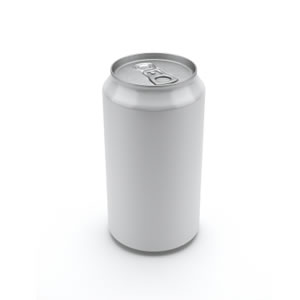Last updated on August 19th, 2022 at 11:16 pm
 I was going to let this slide but I’ve heard the same few phrases a few times and now I’m thoroughly annoyed. These phrases include things like “activist hysteria” and “BPA has been around for 60 years, don’t you think the FDA would have taken notice if it was harmful?” and “activists in the blogosphere are creating unnecessary concern” and my favorite “There is no evidence that BPA in consumer products ever harmed a child or adult.”
I was going to let this slide but I’ve heard the same few phrases a few times and now I’m thoroughly annoyed. These phrases include things like “activist hysteria” and “BPA has been around for 60 years, don’t you think the FDA would have taken notice if it was harmful?” and “activists in the blogosphere are creating unnecessary concern” and my favorite “There is no evidence that BPA in consumer products ever harmed a child or adult.”
Oh, really? That’s twice today I’ve read articles stating that there is no scientific evidence that BPA can harm anyone and that “activists” are just creating unnecessary hype. Let’s review some of this non-existent scientific evidence shall we?
- Yale School of Medicine: Found that BPA affected brain function and caused mood disorders in monkeys (perhaps someone should tell Yale that they don’t count as scientists)
- University of Cinncinati: Found that BPA disrupts cancer treatments
- Journal of American Medicine: Doctors in London published their findings that linked BPA to heart disease and diabetes. (“…found that the 25% of people with the highest levels of bisphenol A in their bodies were more than twice as likely to have heart disease and, or diabetes)
- University of Cinncinati: Found links to BPA and Metabolic Syndromes (which if untreated can lead to coronary artery disease, stroke and type 2 diabetes.)
- Yale School of Medicine: Found that BPA impairs brain function. After extended BPA exposure, primates had lost nerve cell connections in the parts of the brain that control memory, learning and mood.
- North Carolina State University and the National Institute of Environmental Health Sciences: Found that exposure to BPA at levels the EPA has determined are safe resulted in early onset of puberty, which is a known risk factor for breast cancer and other mental and physical health problems. Data also show higher levels of exposure to BPA can lead to significant ovarian malformations, including cysts that likely indicate infertility.
- University of Cinncinati: BPA caused abnormal heart rhythms in female mice and rats in the lab setting.
- North Carolina State University and the National Institute of Environmental Health Sciences: Discovered a connection between exposure to BPA and early puberty and reproductive health problems with female lab rats who were given doses of the chemical “equivalent to or below the dose that has been thought not to produce any adverse effects. (Biology of Reproduction)
And the list goes on and on… If that’s not enough scientific evidence that Bisphenol-A needs to be re-evaluated for safety than I don’t know what people like Ms. Whelan from Forbes Magazine or Dr Gilbert Ross of the American Council on Science and Health who seems to think there “isn’t a shred of scientific or medical sense in the proposed ban of bisphenol-A” needs to hear in order to consider that perhaps just because something has been in use for 60 years doesn’t mean that there aren’t underlying effects that people are experiencing in their normal lives that may have been caused or enhanced by over-exposure to chemicals in our daily lives. Could they be right? Maybe! And I hope they are… I wish I could be that confident that chemical makers and the FDA had my best interest at heart. I wish I could just blindly trust the way they do. I’d probably sleep better at night if I could just leave my health and safety up to other people rather than opening my eyes to what’s going on around me.
It’s hard to tell why John Smith developed Diabetes at the age of 60. Could it be BPA? Maybe, maybe not. But as a consumer and a parent and a human being… I don’t want risks from chemicals to up my chances of developing health problems later in life. Nor do I want to expose my kids to something that *might* create reproductive problems for them in the future. MAYBE is not good enough for me.
Those of us who write about and talk about pushing for this change are not trying to be alarmist, or to just have something to be hysterical about. We’ve read the studies, we’ve looked at the research and we’ve wondered “what if”. We also have recognized that living without overexposure to BPA in our lives is 100% possible. Does that mean less money for companies who rely on BPA? Sure. Do I care? No.
Living with blind faith that “regulators” are protecting me and everything I touch is safe for my health and my family is just not something I will ever do.

